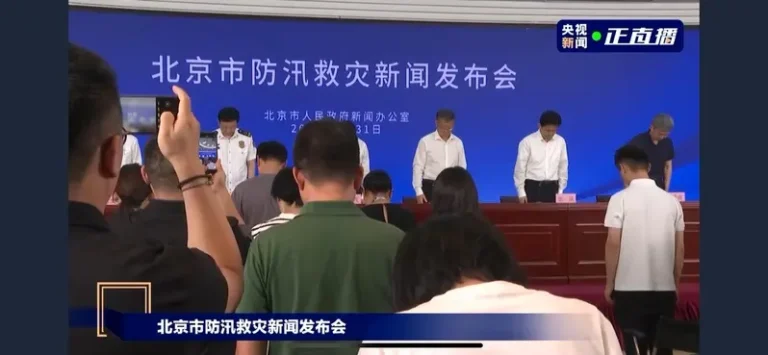
While some young Chinese admit to spending too much time online, many are skeptical of new government measures aimed at limiting the amount of time young people spend online and on social media.
At China’s 14th National People’s Congress, which ended this week, former international basketball star Yao Ming called for some restrictions on young people’s internet use. Yao proposed that children be forced to turn off all electronic devices for one day each semester, a “24-hour screen-off campaign,” and go outdoors to exercise.
In addition, government officials called for tighter regulation of online games and mentioned harmful online content, warning that excessive internet use is harming the health and academic performance of minors under the age of 18.
China already has one of the world’s strictest internet regulatory systems, with tens of thousands of websites, foreign social media platforms and content blocked, but at the same time, the country has a huge number of online users.
On Chinese social media, some netizens praised the government’s efforts, but many were unhappy with the inherent contradictions in the policies. Some pointed out that students spend most of their time in school and rely on internet resources to complete their homework.
“Schools should assign fewer homework that requires mobile phone clocking in and online research,” wrote one netizen from Hebei Province.
“Minors don’t get home until 9 or 10 p.m., so how can they have time to use social media?” a user from Beijing commented.
A college student in Beijing spoke to Voice of America (VOA) on condition of anonymity because of the sensitivity of the topic. She said that while she understood the government’s concerns, proposals like Yao Ming’s were unlikely to have a real impact.
“Chinese teenagers and young people are completely addicted to the Internet. Walking down the street, you can see people looking down at their phones everywhere. We use the Internet for almost everything,” she told VOA.
“I don’t think the proposal to restrict young people’s Internet use will be effective. Internet addiction is difficult to quit. How can setting up ‘Internet restriction days’ really reduce the problem of excessive Internet use?” she added.
According to the “2024 China Game Industry Minor Protection Report” released by the Game Publishing Working Committee of the China Audio-Video and Digital Publishing Association, as of December 2023, the number of Internet users under the age of 18 in China has reached 196 million, and the Internet penetration rate of minors has reached 97.3%.
Will Wang, a Chinese student studying in the United States, said that when he returned to Beijing during the holidays, he found that the Internet had been deeply integrated into daily life, and teenagers were very active on social media platforms.
“Internet access and screen time are growing significantly in China at all ages… Many Chinese teenagers are addicted to Internet platforms such as Douyin, Xiaohongshu, and Bilibili,” Will Wang wrote in a written response to VOA.
In the busy academic and daily life of young Chinese people, the Internet has become one of the few private spaces they can access, and Will Wang believes that this has also promoted high-frequency Internet use.
“Most Chinese teenagers do not have much private space at home and school, so the Internet becomes their only choice, especially considering their busy schedules – almost every child needs to attend cram schools or other study-related activities after school,” Will Wang said. “For teenagers, the Internet makes it easier for them to stay in touch with friends and the outside world.”
Xu Quan, a media commentator in Hong Kong, believes that cyberspace has a positive impact on children’s mental health because they face huge pressure from parents and academics.
“Contrary to what some people understand, the Internet helps them relieve stress to a certain extent. If they are completely deprived of the Internet, it may cause greater harm to their physical and mental health,” Xu Quan told VOA.
The Chinese government has previously introduced a number of measures to limit the time minors spend online. In October 2020, China revised the “Minors Protection Law” and added a new “Internet Protection” chapter, requiring social media, games and live broadcast platforms to introduce anti-overuse measures. This law specifically targets game addiction.
In 2021, the Chinese government issued a strict game time restriction order, prohibiting minors from playing games between 10 pm and 8 am, and stipulating that they can play for a maximum of 1 hour on weekdays and a maximum of 2 hours on weekends.
During the 2025 Spring Festival, Tencent Games issued a “play limit order” stipulating that minors can only play the company’s games for 15 hours during the 32-day holiday.
However, all of these restrictions can be circumvented by using or creating unrestricted adult accounts.
Despite the government’s push for these restrictions, A Qiang, who used to work in China’s media industry, believes that the latest proposals from the conference are “just talk” and will not really promote policy changes.
A Qiang believes that the real solution should be to reduce the burden on minors in their offline lives, such as reducing excessive academic pressure.
He said the problem is not that they have too much freedom online, but that they lack freedom in real life.






